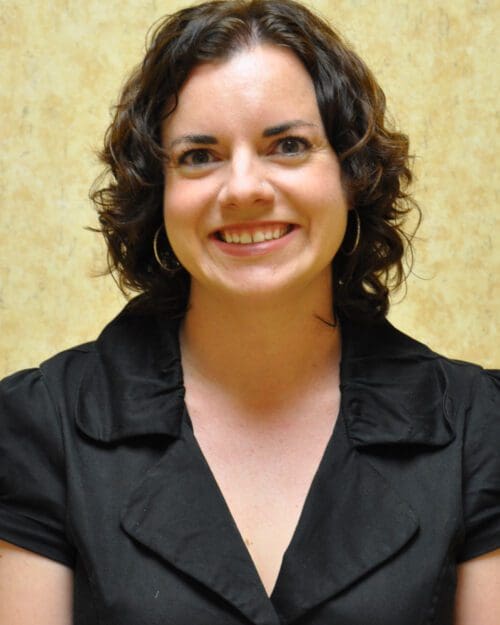Lionhearted Leaders: Bethany Lee

Bethany Lee helps students find success in self-expression and publishing
Bethany Lee, assistant professor of English and director of the PNW Writing Center, feels her role as a creative writing instructor has helped her students find media to share their feelings as they navigate a complicated educational career affected by the COVID-19 pandemic.
“A lot of people have felt stifled by a variety of COVID-era issues,” Lee says. “We’re experiencing a collective trauma. We’re being rewired. Feelings are associated with language, and when you’re experiencing trauma, you’re attaching more negative feelings to words and ideas. It’s pretty common for writers to feel stifled by the physical and emotional environment, and things become more fraught than they were before. For students to find those generative avenues is important.”
Lee’s lineup of creative writing courses and in-class publication opportunities additionally give students a chance to enjoy their first byline or credit in a tangible form.
Earning experience
One of Lee’s biggest publication opportunities for PNW students is the Furnace student literary journal. The magazine is produced annually each spring semester. It accepts submissions from the PNW community and is proofread and designed by students in her “Creative Writing as a Profession” course.
The result is a dual opportunity where students can at one point in their academic careers submit work and then later have a hand in producing the overall product.
“Most literary magazines have an acceptance rate under 5%,” Lee says. “In most places you have to be a grad student to have that experience.”
A class typically comprised of 15 students will do anonymous reviewing of submissions, make editorial decisions of what is selected, design the magazine, and publish it in hard copies and digital forms.
Aside from a great way to earn a writer’s credit on published work, Lee sees the in-house publication as a strong professionalization experience for students to get a taste for how to target publications for creative writing and earn and give valuable feedback.
Finding voices
Lee maintains that editorial judgment distance is important to not hinder or shame someone’s penned emotion. Not impeding that process is the key for students to find themselves.
“Part of being an editor is being nonjudgmental. It’s not about whether you’re smart or dumb; it’s about how your brain was working in that moment. Encouraging writers to express themselves maximally can help them determine what’s working best and how to share their ideas most uniquely and most specifically.”
Ultimately Lee feels she can open a door for students to do more than simply write what’s on their minds. It’s a collective coming together of minds to process feelings through language and transform it into informative art.
“I’m impressed with students’ vulnerability,” Lee says. “We talk about negative things, and people are able to set boundaries and figure out what vulnerability looks like for them. Students work on pieces that reduce stigmas. Their vulnerability contributes to this positive conversation.
“One of the things I take pride in is my students will tell me they were glad to have someone they felt they could be x thing with. The lack of judgment made it so they could find their interest and find a way to express themselves.”